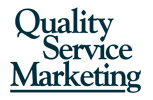I am reminded in this graduation season of the time my husband and I spoke at an honors convocation at our alma mater, Lehigh University. It was back in 1987 when we were “young professionals.” It was also a time when making a lot of money was considered an indicator of success.
But financial success was not what we spoke about. Instead we focused on the importance of getting involved in both community and professional life to “give back” in positive ways — a message that’s still relevant. Here’s an excerpt of our speech adapted for this post.
What we said then
Being in school is like being in a cocoon — you’re in a relatively insulated environment in which you grow and develop. But what happens when you graduate and enter the “real world?” The difference is your growth doesn’t just “happen” anymore. You’re solely responsible for your own development at that point. It’s kind of scary, but the good news is there are lots of opportunities out there for you.
I’m talking about “continuing education” — the personal and professional development you get through involvement in professional, civic, and community organizations. The contacts you make in these groups provide a valuable source of continued education and professional growth. They provide the opportunity to share ideas with and learn from others: to find out whether you’re on the right track with a project you’re working on … where to go if you’re having problems … or just to know you’re not alone with the challenges and frustrations you face. Besides serving as support networks, these organizations also provide opportunities for you to develop and exercise your leadership potential.
I know from my own experience that the opportunities and rewards are invaluable. From my involvement with the American Marketing Association [I served on the national board of directors at the time], I’ve traveled throughout the U.S. and Canada to meet with marketing professionals in different industries. I’ve also gotten to know many academics well known in the field. Working together with them I’ve been able to broaden my knowledge of marketing and gain insight into the different career paths that are available.
But professional development is not limited to organizations like the AMA. Through involvement in community groups such as the local Chamber of Commerce and United Way, I’ve met and worked with top executives in various capacities. Whether serving on or chairing a committee, I’ve had the chance to observe their leadership skills while exercising mine.
In a broader context, why is continuing education through this kind of involvement so important? Because it’s characteristic of the social environment in which people are looking for self-fulfillment. According to noted social observer Daniel Yankelovich, “Seekers of self-fulfillment are determined to prove that life can be more than a grim economic chore. They are eager to give more meaning to their lives, find fuller self-expression, and add a touch of adventure and grace to their own lives and those of others.”
Another reason so many professionals get involved is based on their need to be part of something, to belong. These groups serve as a valuable network; they provide an ideal opportunity to share ideas and discuss common problems. More importantly, they convert strangers into colleagues and colleagues into friends.
My husband, Michael, also spoke about his experience as a student volunteer and later as a community volunteer and leader.
This real world experience put my classroom experiences in perspective, and I was hooked. As a result, there has rarely been a period of time in which I have not been involved in some community-based voluntary activity. I learn a lot. It provides a challenge different than the challenges that I face on a daily basis. I can choose to get involved in areas in which I believe I need more experience or understanding. Everyone wins because the more and the brighter the heads there are to solve a problem, the better the solutions.
I also believe that a better understanding of the problems which affect our communities make us better citizens, more intelligent voters, and more complete human beings. The skills you gain by performing your duties as volunteers can give you confidence to do your job better or help you expand your horizons and learn more diversified skills.
Our communities need us more than ever … Use your energy and your minds creatively. Get into your community. Don’t try to escape it; invest in it. You stand to gain personally as well as professionally.
And now
As we plan for retirement in the future, we will continue to seek opportunities to learn, grow, and give back as volunteers. It’s a fulfilling form of “engagement” that we still strongly recommend.
Best of luck to all graduates in your professional and community engagements!

